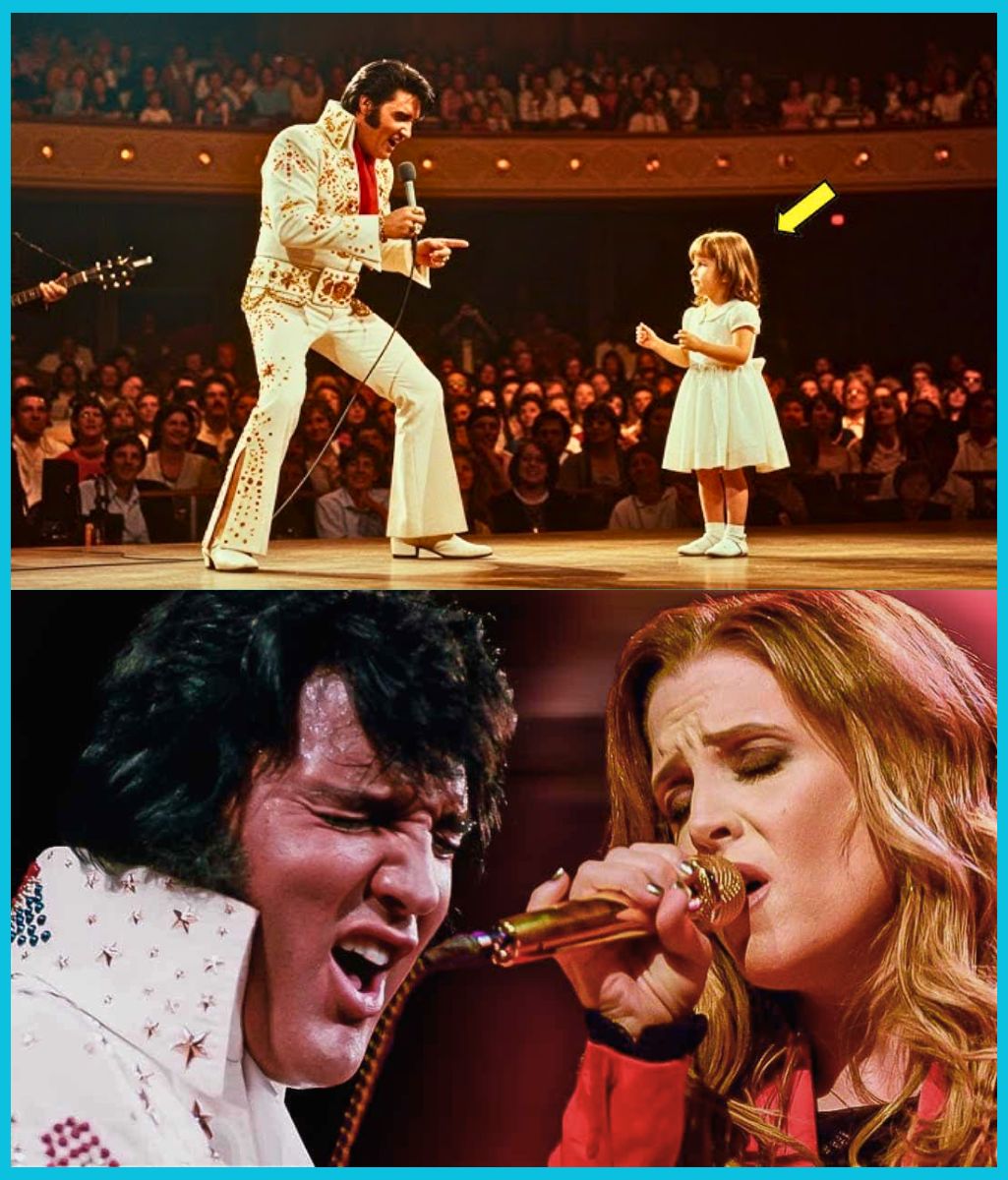
TWO GENERATIONS, ONE TIMELESS SONG: The Emotional Reunion of Elvis Presley and Lisa Marie in “Don’t Cry Daddy”
There are moments in music that go beyond sound — moments that touch something sacred in the human heart. One of those moments came when Elvis Presley and his daughter Lisa Marie Presley joined their voices across time for the hauntingly beautiful duet “Don’t Cry Daddy.” Though their collaboration happened years after Elvis’s passing, through modern technology, the emotional power felt immediate and real — as if father and daughter were standing side by side once more.
Originally recorded by Elvis in 1969, “Don’t Cry Daddy” is a song steeped in sorrow and comfort, a tender ballad about loss, love, and endurance. When Elvis first sang it, he delivered it as only he could — with a voice filled with ache and grace, as though he were whispering to a grieving soul, “You’re not alone.” For decades, fans embraced the song as one of his most heartfelt performances, a reminder that even kings carry their share of pain.
But decades later, the song found a second life. In 1997, during a tribute event marking the 20th anniversary of Elvis’s passing, Lisa Marie Presley recorded a new version — blending her own vocals with her father’s original track. The result was extraordinary: two generations meeting through melody, two hearts separated by time reunited in harmony. When Lisa’s gentle, trembling voice entered beside Elvis’s rich baritone, the audience collectively held its breath. Many wept openly. For a brief, unforgettable moment, time seemed to stand still.
What made that duet so moving wasn’t only the technical magic — it was the humanity within it. Lisa wasn’t just singing to the world; she was singing to her father. You could hear it in every note — the longing, the pride, the unspoken words of a daughter who had grown up in the shadow of a legend yet still yearned for his embrace. And as Elvis’s timeless voice responded through the decades, it felt as if he was answering her, reassuring her, reminding her — and all of us — that love never really leaves.
The performance became a symbol not only of musical heritage but of emotional legacy. It reminded fans that Elvis Presley was more than a cultural icon; he was a father, a man who loved deeply and left behind a daughter who carried that love into her own life and art. For Lisa, who later said that the experience was one of the most meaningful of her career, the duet was a conversation — one she had always wanted to have.
When the final notes of “Don’t Cry Daddy” faded, there was a silence that said more than applause ever could. It was as if the world had just witnessed a reunion between two souls — one on earth, one beyond — brought together by the universal language of music.
Years have passed since that moment, and both father and daughter now rest side by side at Graceland, yet their voices continue to echo together through that song. For those who listen closely, “Don’t Cry Daddy” is more than just a melody — it is a living bridge between past and present, a reminder that while people may leave us, the love they inspire endures forever.
In the end, that is the true magic of Elvis Presley and Lisa Marie — not just their fame or their music, but their ability to make the world feel what they once felt for each other. As the lyrics promise and their duet proves, even through tears, love never dies — it only sings on.
